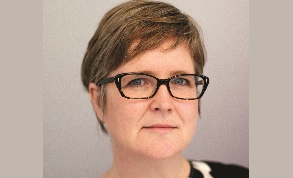Recovery risk to NHS training
The warning came as the training body confirmed details of its budget for 2022/23, which is rising by £500m to £5.5bn. It said the increase included £160m in funding from NHS England and NHS Improvement for the delivery of short-term training to support elective recovery and delivery of the NHS long-term plan.
The budget also includes an extra £2m for running costs to support the transition to HEE becoming part of NHS England by April 2023 as well as increased pension costs.
Plans for the programme of short-term training were set out in an earlier board paper, with funding covering nine different service areas from critical care and cancer to mental health, community services and dentistry.
However, the board paper also highlighted a number of risks facing NHS training. ‘The focus on service recovery potentially could be the greatest risk to training in the NHS for the year ahead,’ it said. The concern is that trusts might prioritise staff time for clinical work rather than education, reducing the capacity for placements vital to future workforce training. Organisations may also decide not to release staff for training. ‘This would result in underspends and reduction in future supply of workforce,’ the paper said.
Funding has been issued early, with regions given more autonomy to redeploy where required. However, the board were warned that there may be limited alternatives as this was a systemic risk. The paper also said there was no funding for potential costs associated with any continued disruption to training because of Covid-19.
Some £2.5bn of the funding will support postgraduate medical and dental programmes, with a further £1bn for undergraduate medical and dental placements and £1.2bn supporting wider clinical programmes.
A spokesperson for the Department of Health and Social Care said there were record numbers of nurses (more than 314,800), doctors (more than 128,000) and NHS staff overall (1.2 million) working in the NHS. ‘We have record numbers of NHS staff including almost 4,300 more doctors and over 11,800 more nurses working in the NHS compared to last year,’ they said. ‘This funding will ensure we keep building a bigger and better trained NHS workforce – including training record numbers of undergraduate medical students and delivering 50,000 more nurses.’
NHS Providers deputy chief executive Saffron Cordery* (pictured) welcomed the increase but warned that rising inflation would reduce what the budget could buy. She said trust leaders would take seriously HEE’s concerns over the potential impact on education and training of focusing on recovery targets.
‘But the simple truth is that the NHS doesn’t have enough staff at this point, and that significant, sustained action from government will be required to solve this issue. Trust leaders are working incredibly hard and innovating to cut waiting times, but pressures on our existing overstretched staff, and persistent major workforce shortages, are preventing trusts from going even faster,’ she said.
With 110,000 vacancies in trusts, she repeated calls for a long-term, fully funded workforce plan.
*Saffron Cordery will become interim chief executive of NHS Providers in June following the announcement that current chief executive Chris Hopson is moving to NHS England as chief strategy officer.
Related content
We are excited to bring you a fun packed Eastern Branch Conference in 2025 over three days.
This event is for those that will benefit from an overview of costing in the NHS or those new to costing and will cover why we cost and the processes.